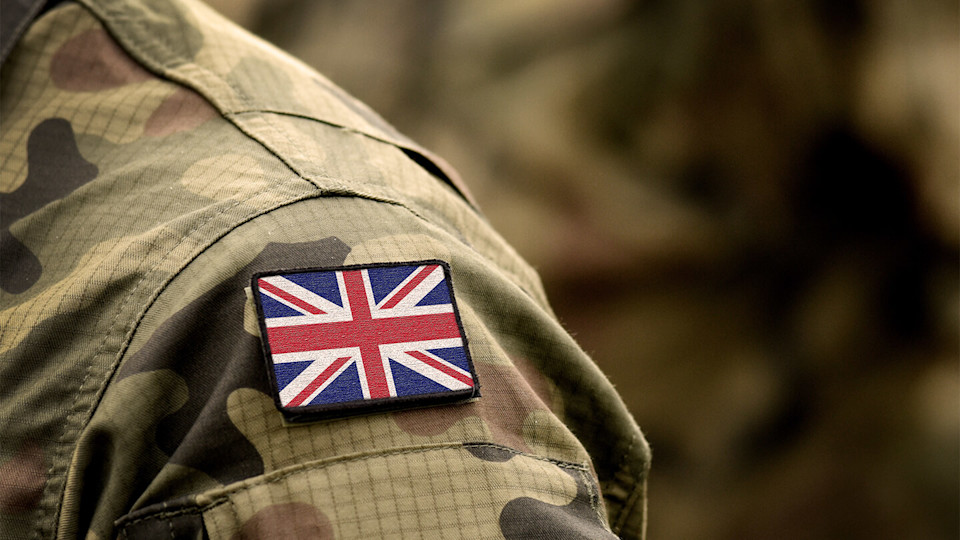
Defence
Former soldier seeks better support after injury
A former solider who was discharged from the Army after being exposed to freezing cold temperatures has called for more support from the Ministry of Defence (MoD) for service personnel who are forced to give up their careers due to injury.
Mozart Samuel achieved his lifelong dream of becoming a member of the British Army in 2008, aged 21, and went on to serve in Afghanistan in his role as a Guardsman.
However, after serving for more than 11 years, Mozart’s time in the Forces was cut cruelly short by Non-Freezing Cold Injury (NFCI) – a condition caused initially by exposure to freezing cold temperatures in 2010, which was aggravated again in 2018, and saw Mozart forced to leave the Army.
The NFCI – sustained through not being given appropriate kit for the weather conditions he faced - has left father-of-four Mozart with lifelong pain and swelling in his hands and feet. While initially the MoD looked at ways he could continue to serve his expected 24-year tenure in the Forces, the ongoing impact of NFCI meant his career came to an end, leaving Mozart devastated.
He has since retrained as a gas engineer, and while he is now rebuilding his life, Mozart, from Slough, has called for more support from the MoD for people in his position, who are discharged from the Army in traumatic circumstances and face an uncertain future.
“It’s absolutely devastating for everything you’ve worked for to end in this way,” says Mozart, whose relationship broke down amidst the distress of his discharge from the Army.
“You work hard and make so many sacrifices along the way, only for it all to end like this. It was a kick in the teeth. I worked so hard for so many years, always putting the Army first, only for it all to be over through me being exposed to the cold as I was.
“What you think what will be a lifelong career is over in an instant, and I can’t describe how scary that feels. I had no job, no idea what to do. It’s very hard, and there is no support for you. No one has ever checked in with me to see how I’m doing, to see if I’m OK. Mentally, it has taken a lot and it has been a struggle.
“Recently, someone I’d served with for ten years was discharged, and I am checking in on him regularly. I know what it’s like to be in his position – and I also know no-one else is going to help him, which is so wrong. There needs to be more support, rather than just being left to get on with it on your own and being made to feel like you are just a number.”
Mozart initially suffered NFCI in 2010 while on a training exercise in Norfolk, where he was exposed to severely cold temperatures, and afterwards began to experience symptoms of numbness. He was sent to Afghanistan shortly afterwards, where these symptoms continued.
On his return, his NFCI was confirmed, but he was able to continue in service without experiencing any flare ups for a number of years – but after being exposed again to freezing temperatures on a UK training exercise during the ‘Beast from the East’ storm, his ongoing NFCI meant he was permanently downgraded.
“I was supposed to have reviews of my symptoms over the years, but I didn’t get anything. I was left to self manage my symptoms, which worked well for a long time – but then when I was again left without the proper kit in 2018, my symptoms flared up badly,” recalls Mozart.
“It’s something I have to live with now, and the pain, pins and needles and swelling get particularly bad in hot or cold temperatures. I have to manage the symptoms as best I can, as I’m working in a new job now and am trying to get on with my life.
“I will always be devastated about how my Army career ended, and at how my life has been turned upside down because of that, but I have to look to the future.”
Mozart has been supported by military specialists at law firm Slater and Gordon in securing a settlement from the MoD, which denied liability for Mozart’s injury for five years before settling before the matter proceeded to trial.
Natasha Orr, head of military at Slater and Gordon, acted for Mozart, who hailed the support he received from the firm as being “excellent”.
“Mozart dreamed of being in the British Army, and through no fault of his own, that dream was cut short through NFCI. That was an absolutely devastating reality for him to face,” says Natasha.
“Too often, we hear stories like Mozart’s, where people who have served their country so bravely and with such unwavering commitment are discharged to absolutely nothing after injury. Their lives as they know it are over, and they are forced to start again from scratch in hugely different circumstances, which is extremely traumatic for the injured person and their whole family.
“I echo his calls for more support to be provided from the MoD, to save more people from being reduced to feeling like a number, and to be treated with respect and dignity for the service they gave to our Armed Forces.”
How can Slater and Gordon help
We have a deep understanding of military law and expertise in handling complex military injury claims, and we’re committed to guiding you through your legal journey and beyond. If you would like more information on military claims, our experts are on hand to help.